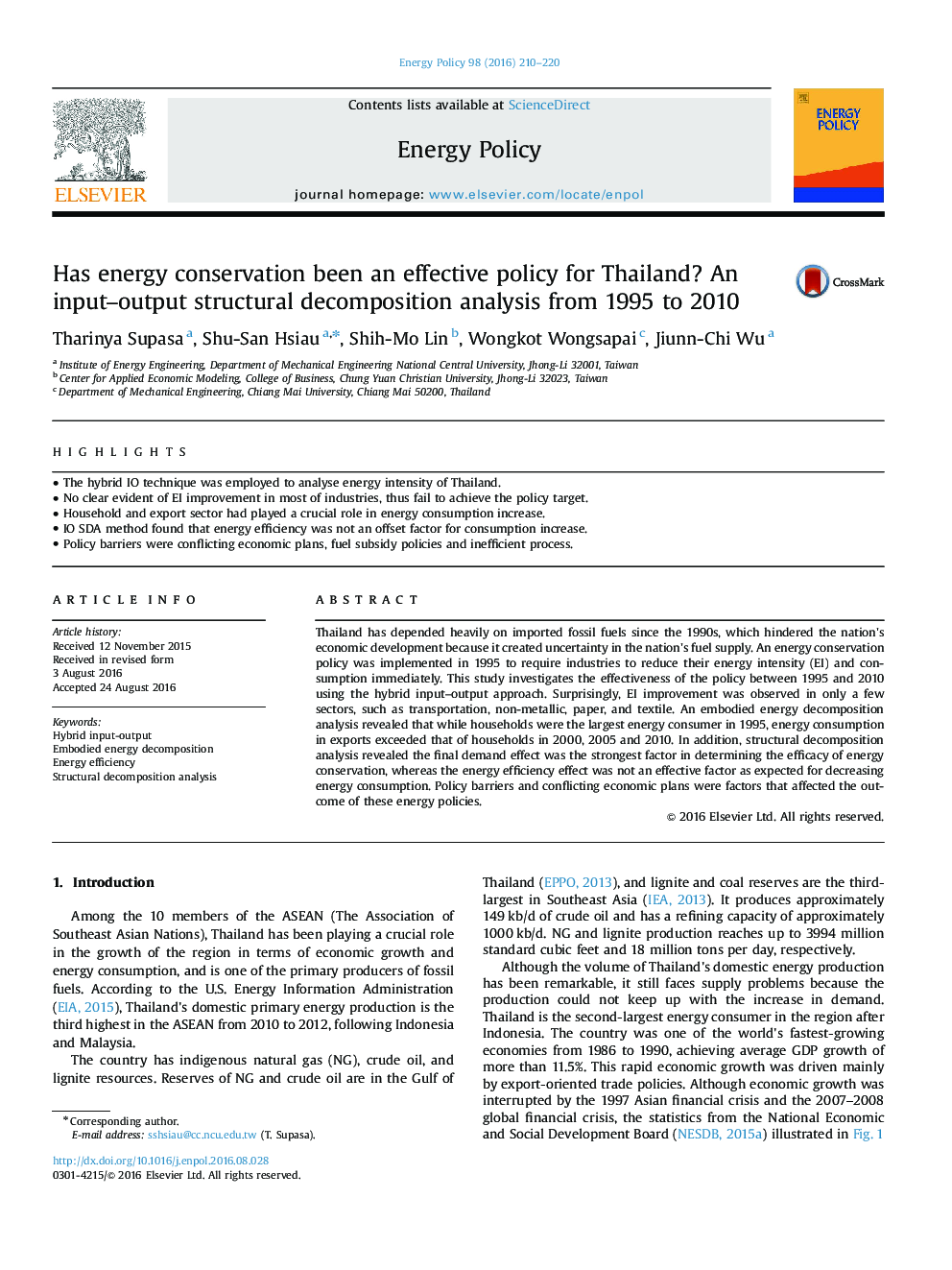| Article ID | Journal | Published Year | Pages | File Type |
|---|---|---|---|---|
| 7398372 | Energy Policy | 2016 | 11 Pages |
Abstract
Thailand has depended heavily on imported fossil fuels since the 1990s, which hindered the nation's economic development because it created uncertainty in the nation's fuel supply. An energy conservation policy was implemented in 1995 to require industries to reduce their energy intensity (EI) and consumption immediately. This study investigates the effectiveness of the policy between 1995 and 2010 using the hybrid input-output approach. Surprisingly, EI improvement was observed in only a few sectors, such as transportation, non-metallic, paper, and textile. An embodied energy decomposition analysis revealed that while households were the largest energy consumer in 1995, energy consumption in exports exceeded that of households in 2000, 2005 and 2010. In addition, structural decomposition analysis revealed the final demand effect was the strongest factor in determining the efficacy of energy conservation, whereas the energy efficiency effect was not an effective factor as expected for decreasing energy consumption. Policy barriers and conflicting economic plans were factors that affected the outcome of these energy policies.
Related Topics
Physical Sciences and Engineering
Energy
Energy Engineering and Power Technology
Authors
Tharinya Supasa, Shu-San Hsiau, Shih-Mo Lin, Wongkot Wongsapai, Jiunn-Chi Wu,
